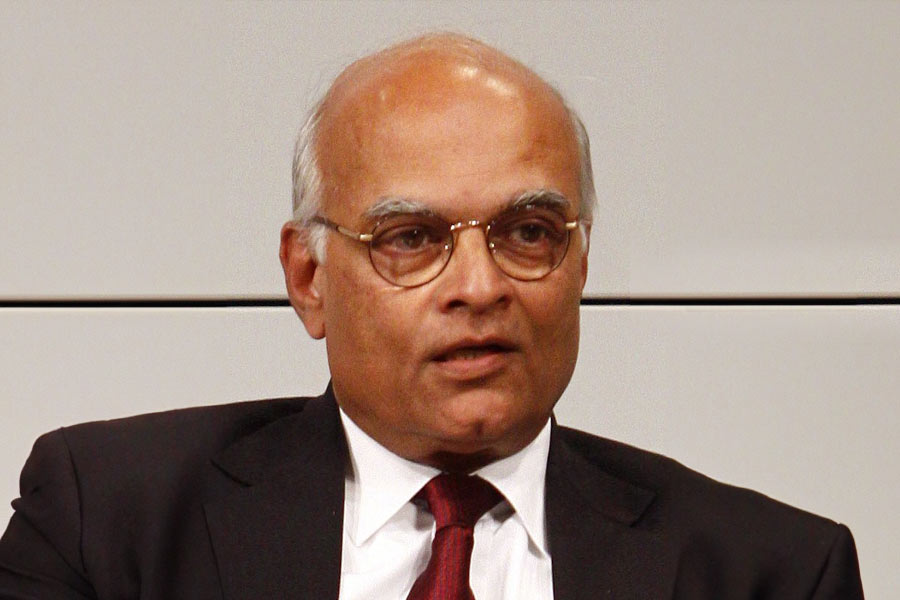The primary driver for the US recently passing the 'Resolve Tibet Act' is its "rivalry with China", not any concern for Tibet, claimed former national security adviser (NSA) Shivshankar Menon.
Speaking at the launch of former diplomat Dilip Sinha's book "Imperial Games in Tibet: The Struggle for Statehood and Sovereignty" on Tuesday, Menon argued that there are "clear limits" to America's commitment to Tibet and they are waving the flag of Tibet today in its own interest.
"I would be very careful to say 'Oh! the world is changed, they (the US) have passed an act'. I think you need to look at the basic correlation of forces and the balance of forces, and the actual strength of the people and what is the interest of the great powers and how they see it at this time.
"Today, the Americans see it as in their interest to at least wave the flag of Tibet but this doesn't extend to recognising Tibet... It is driven not by the concern for Tibet, the primary driver here is the rivalry with China," said Menon, who has also served as the foreign secretary from 2006-09.
US President Joe Biden has recently signed into law a bill that enhances American support for Tibet and promotes dialogue between China and the Dalai Lama towards a peaceful resolution of the dispute over the status and governance of the remote Himalayan region.
China, on the other hand, had opposed the 'Resolve Tibet Act', describing it as a "destabilising" Act. The Act enhances US support for Tibet — empowering State Department officials to actively and directly counter disinformation about Tibet from the Chinese government.
Though clear that Tibet cannot rely on great power rivalry to solve their problems, Menon, 75, lauded India's effort in ensuring that the Tibetan culture, civilization and identity "stays strong".
He said the Tibetans, too, like Armenians, could have been another "lost people".
"They are not lost. Part of it because of His Holiness, his personality and what he has done. But also because I think of what India provided, and that we shouldn't forget and should never give up on," he added.
After a failed anti-Chinese uprising in 1959, the 14th Dalai Lama fled Tibet and came to India where he set up the government-in-exile at Dharamshala in Himachal Pradesh.
From 2002 to 2010, the Dalai Lama's representatives and the Chinese government held nine rounds of dialogue that did not produce any concrete outcome.
Praising the book, Menon said it is an "honest account" of what happened -- be it the great power rivalry, how it affected Tibet or how it affected India.
"The nice thing in the book is that this is not a partisan historical account. It is a straightforward account based on what actually happened," he added.
"Imperial Games in Tibet" claims to offer a thorough exploration of Tibet's historical and contemporary geopolitical significance.
It also sheds light on the 14th Dalai Lama's escape to India and the resultant Sino-Indian tensions, critically examining the ongoing impact of Chinese suzerainty over Tibet amidst persistent citizen protests and global calls for freedom.
The book, published by Pan Macmillan India and priced at Rs 599, is currently available for purchase across online and offline stores.
Except for the headline, this story has not been edited by The Telegraph Online staff and has been published from a syndicated feed.











